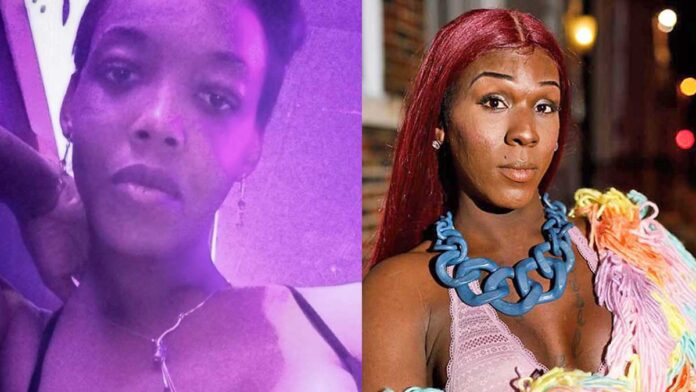
The Philadelphia District Attorney’s Office (DAO) announced updates on the murders of trans women Michelle “Tameka” Washington and Dominique “Rem’mie” Fells at a July 26 press conference held at the William Way LGBT Community Center.
“We strongly condemn hate crimes against the LGBTQ+ community,” First Assistant DA Robert Listenbee said at the press conference. “I want to make it clear that we will do whatever we can to support the investigation and prosecution of people that are engaged in those hate crimes.”
Troy Bailey, who was convicted of murdering Washington, was sentenced to 25 to 50 years of state incarceration. Washington was fatally shot on May 20, 2019 in the area of 3400 N. 11th Street.
When asked how she felt about Bailey’s sentencing, Washington’s sister Crystal Davis said at the press conference, “I thought I was going to get there and feel relieved, but I didn’t. He wasn’t remorseful at all, and I think that just brought all of the hurt and pain back, for me, for my family, for my children.” Davis described her sister as full of life. “She loved her family, she loved her nieces and nephews, her sisters. She loved being an advocate for the LGBTQ community.”
A preliminary hearing in the murder of Fells revealed DNA evidence against Akhenaton Jones, “to suggest that Dominique, or Miss Fells was killed in [his] home,” Assistant DA Chesley Lightsey said at the press conference. Lightsey is a supervisor in the DAO Homicide and Non-fatal Shooting Unit. Fells’s body was found on June 8, 2020 near the banks of the Schuylkill River. Lightsey also said at the conference that the DAO does not have evidence or reason to believe that Fells was killed because she was transgender.
“Dominique ‘Rem’mie’ Fells once walked a fashion show in this room in a moment of joy,” William Way Executive Director Chris Bartlett said at the press conference. “If you’ve ever seen a picture of her in that joyous moment celebrating her life, you’d join me in even greater grief for her loss.”
Other conference speakers and those present included Assistant DA Caleb Arnold, who works as DAO Immigration Counsel, DAO LGBTQ+ Liaison and Victim Witness Coordinator Kelly Burkhardt, Washington’s sister Crystal Davis, and Associate Minister of Whosoever Ministries Rev. Andrea Lamour-Harrington. Family members and advocates of Fells were present as well.
“I stand here as a reverend, I stand here as a proud, Black Mexican trans woman, but I stand here perplexed,” Harrington said at the press conference. “Why? Because in this day and time, 2021, it seems as if it is hunting season on trans women. It seems as though there is something against the very lives and breadth of trans women just living their lives.”
Burkhardt opened her remarks by saying, “Even though we think that certain cases might not be hate crimes, there is definitely hate towards trans women. The average life expectancy of a trans woman, especially trans women of color, is 35 years old.” She spoke about her experience working with Washington, referring to a pin she wore on her jacket lapel.
“The day I found out she died… I immediately put this [pin] on my badge and now I wear it here proudly, because as a cis person everyone in my space is very well aware of the importance of us to uplift trans folks, particularly Dominique ‘Rem’mie’ Fells, Tracy ‘Mia’ Green and of course Michelle ‘Tameka’ Washington,” Burkhardt said at the conference.
Despite the DAO’s commitment to prosecuting perpetrators of crimes against LGBTQ community members, the DAO last week refused to release records in the unsolved killing of Nizah Morris, a Black trans woman who died of a head injury in 2002.
When it was time for questions, PGN asked whether the DA’s office was committed to investigating unsolved trans deaths, including Morris.
In response, ADA Lightsey, who said she didn’t have details about Morris’s case, said, “Yes, the office is always committed –– if there’s new evidence that is brought forward, or if there’s something that we didn’t know before or something that would change the way that we view prior evidence –– no investigation of a homicide is officially closed, unless we know who the suspect is… but we don’t ever stop investigating those cases.”